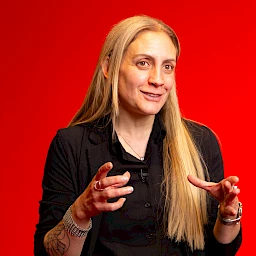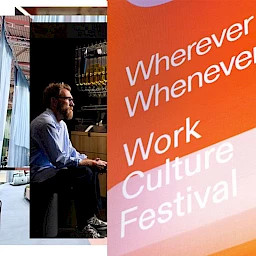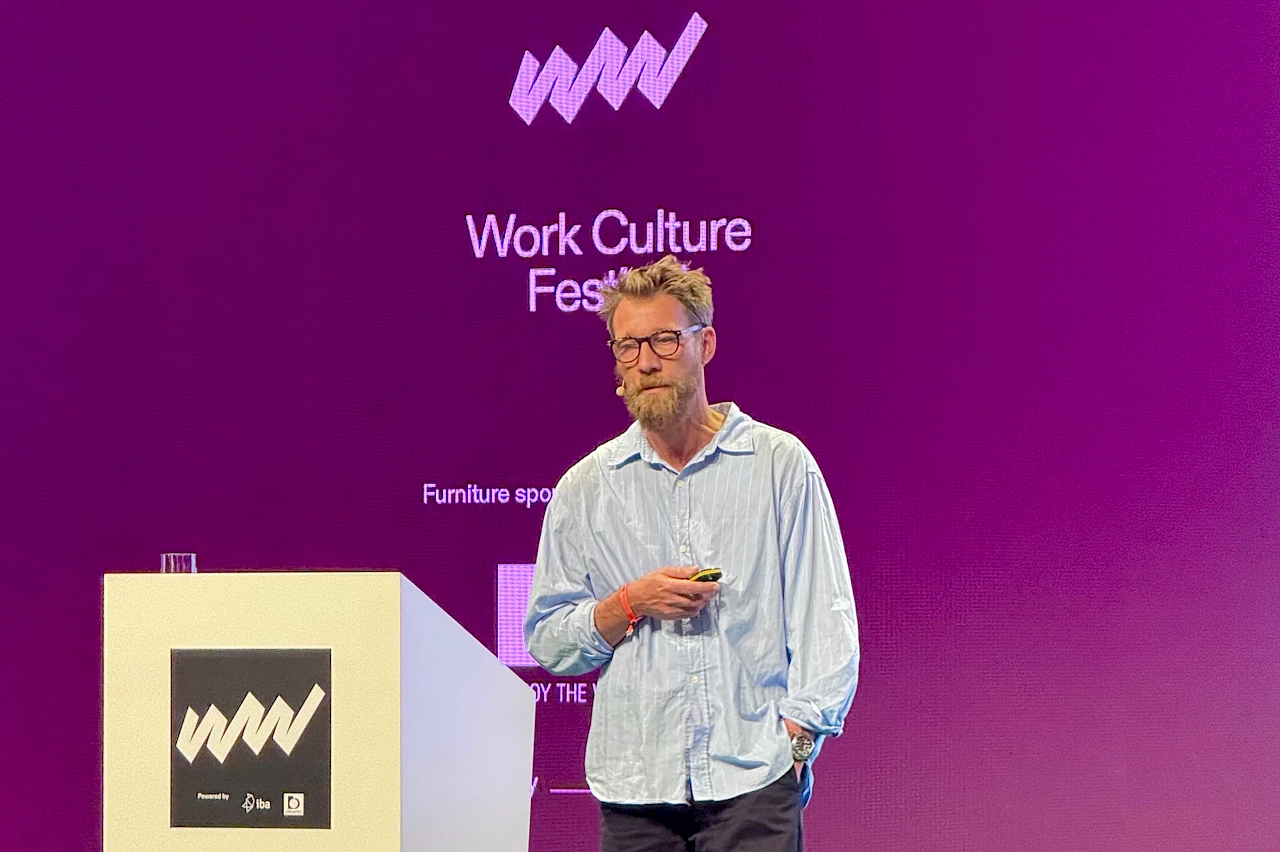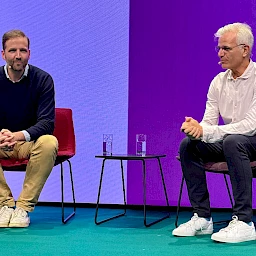At the Work Culture Festival, Danish chef Mikkel Karstad spoke about the positive effects of healthy eating on performance and well-being in the workplace. With over 30 years of experience in the catering industry and 15 years of specialisation in canteen concepts, Karstad shared his vision with the audience: away from meat-heavy buffets and towards a vegetable-focused, sustainable food culture. His approaches range from innovative serving concepts and varied menu design to strategies for reducing food waste.
Current situation: Meat dominates in many canteens
In his presentation, Karstad first analysed the typical canteen offering. “Many canteens still rely on large buffets where meat, carbohydrates and sauces take centre stage,” he explained. Vegetables are often just a side dish to which little attention is paid. According to Karstad, this model reflects outdated habits that stem from a meat-centred cooking culture. He emphasised that a stronger focus on vegetables not only has health benefits for employees, but also makes environmental sense. “Switching from meat as the main ingredient to vegetables significantly reduces the ecological footprint of a canteen and improves the well-being of employees at the same time.”
Focusing on vegetables: A paradigm shift in canteen culture
Mikkel Karstad pleaded for a fundamental reorientation of menus: Vegetables should no longer play a supporting role, but be the star of the plate. “We need to turn the tables and make vegetables the main component of a dish, while meat only plays a supplementary role, if at all,” he explained. As an example, he cited a customer in Denmark whose daily meat usage was reduced from 22 to 13 kilograms by restructuring the menu. “Instead of meat, high-quality, seasonal and regional vegetables should play the main role,” says Karstad. The result of such changes speaks for itself: Employees felt more energised and productive after lunch instead of suffering from an afternoon slump. In order to anchor this paradigm shift, it is crucial to involve employees through storytelling. “You have to explain to people what you are doing and why you are doing it. This makes it easier to establish sustainable changes in the eating culture,” emphasized Karstad.
Please also read

New approaches: Share Food and Single Serving
The transformation of canteen culture requires new serving models. For example, Karstad presented the Share Food concept, in which various dishes are served in small bowls or on platters directly at the table for employees to share. This model is reminiscent of a family table, where eating becomes a communal experience. At the same time, there is no queuing at the buffet, which means that the lunch break can be used in a more relaxed and efficient way. “Share Food creates an atmosphere that is more reminiscent of a restaurant and is flexible enough to be implemented in both small teams and large companies,” said Karstad. Another approach is the Single Serving concept. In this concept, smaller, ready-prepared portions are served at the table—a model that is becoming increasingly popular in Denmark. It enables better control over portion sizes and reduces food waste. “By serving the food on small plates, we avoid overproduction and at the same time promote appreciation for the food,” explained Karstad. The flexibility of the concept makes it possible to start with small portions and add more if necessary. For Karstad, Share Food and Single Serving are more than just serving methods—they create space for social interaction and promote well-being in the workplace. “A shared lunch break, where people not only eat, but also talk and laugh, strengthens the corporate culture and teamwork,” he summarised.
Canteens of the future: Regional, sustainable and flexible
Mikkel Karstad is convinced that the future of canteen culture lies in a balanced interplay of regionality, variety and sustainable concepts. At the same time, he sees the combination of familiar dishes and new, healthier elements as an opportunity to sensitively change eating habits. Hybrid working models in particular place new demands on canteen planning. Changing attendance times require flexible approaches that take into account the actual needs of employees. Concepts such as Single Serving or Share Food can help to avoid food waste and at the same time create a high-quality and social dining experience. “Today, canteens are more than just places to eat—they are a reflection of the corporate culture,” states Karstad. By involving employees and placing a clear focus on sustainability, companies can not only adapt their canteens to modern working environments, but also contribute to resource-conserving and healthy nutrition. “A well thought-out concept that combines quality, regionality and social responsibility becomes a positive experience—for employees and the environment alike.”
Work Culture Festival Impressions

Mikkel Karstad is a chef, culinary consultant and author. His focus is on the creative use of natural ingredients and seasonal vegetables. After gaining experience in renowned Michelin-starred restaurants in London, Paris and Copenhagen, he developed his nature-inspired cooking style at the internationally renowned Noma Restaurant. As head of the canteen at the Danish Parliament, he established an approach based on the consistent use of fresh, regional and seasonal ingredients, for which he received an award. Karstad is currently responsible for the culinary offerings for employees and events at the Bjarke Ingels Group (BIG) headquarters. His cookbooks, including Evergreen, are based on a philosophy that combines taste, aesthetics and sustainability. His aim is to strengthen the appreciation of regional and seasonal food and to promote the integration of fresh vegetables into everyday cooking. Further information: mikkelkarstad.com
Cover photo: © IBA





